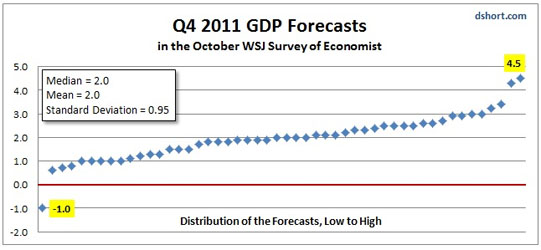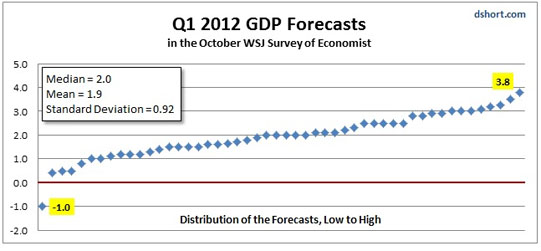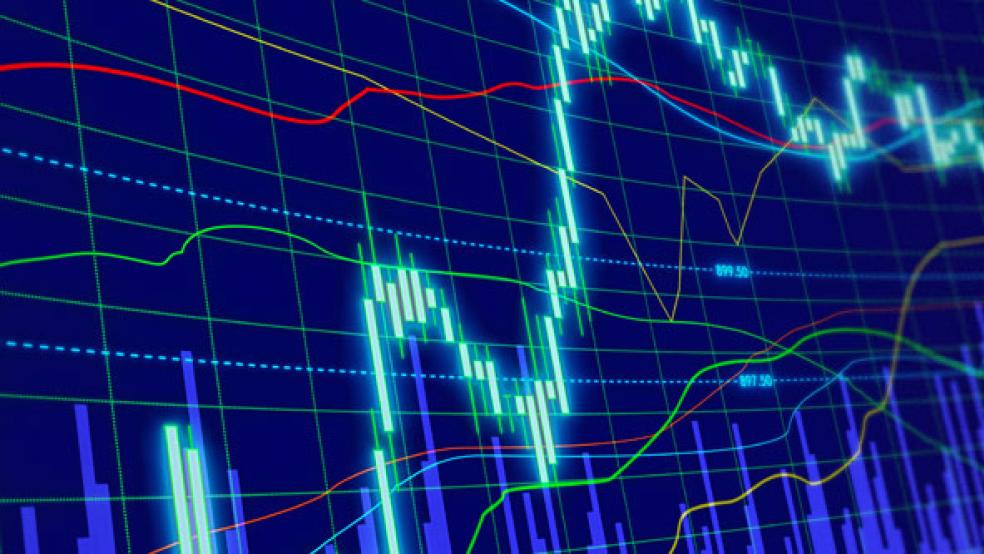Yesterday I posted a preview of the Q3 GDP Advance Estimate, due out on Thursday, with a review of the consensus forecast at briefing.com and close look at the forecasts of the 50 economists who responded to the October Wall Street Journal survey.
What I didn't mention was their response to this survey question: Please estimate on a scale of 0 to 100 the probability of a recession in the U.S. in the next 12 months.
Before I reveal the collective response, let's first look at an overview the economists' estimates for real GDP over the next six quarters.

Indeed, we see that the low end of the range dips into negative GDP territory for Q4 this year and Q1 in 2012. However, the -1.0 number in the table above was the lone negative forecast of Julia Coronado of BNP Paribas for both quarters.
Here again is the graph illustrating the single negative outlier for Q4.

And here is the equivalent graph for Q1 2012.

Again, the question: On a scale of 0 to 100, what is the probability of a recession in the U.S. in the next 12 months?
Based on the charts above, you might guess that the answer is a very low number, right? Only one of the 50 economists actually forecast negative GDP, which correlates rather closely with recessions (see this chart). One out of 50 is two percent.
The answer was 31 percent. Let me repeat that: 31 percent.
Amazingly enough, the same economists who (with a single outlier) forecast positive GDP with a consensus averages ranging from 2.0 to 2.5 over the next six quarters, collectively see a 31% chance of a recession over the next 12 months.
Of course, estimating the probability of a recession isn't *exactly* the same forecasting GDP. But the astonishing disconnect between the two in the WSJ survey suggests that we take the public forecasts of economists with a grain of salt. Aside from two or three academics, the participants in the WSJ survey are employed in the finance industry. Does that contribute to the disconnect?
Related Links:
A Bad Economy Could Cost Obama Reelection (Business Insider)
Did the Economy Grow at a Blazing-Fast 3.2% in Q3? (Business Insider)
A Quick Guide to the Hottest New Idea to Save the Economy (Business Insider)
What Obama’s Jobs Plan Could Mean for U.S. GDP (Business Insider)
In a Closed-Door Meeting Bernanke Reveals: No More Stimulus Coming (Business Insider)


